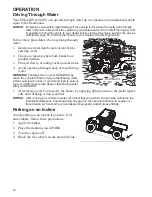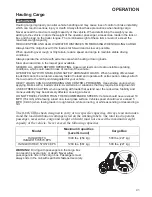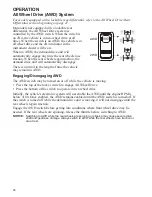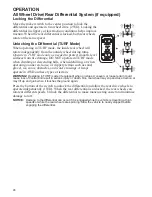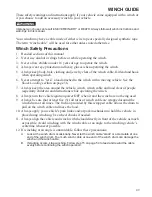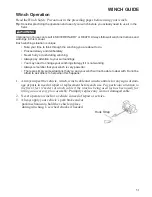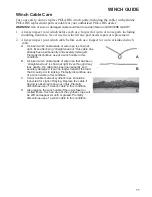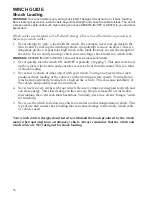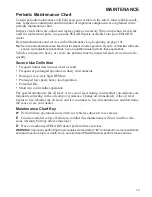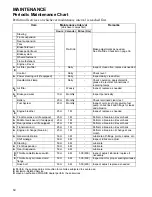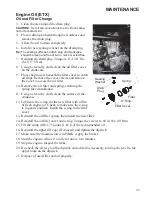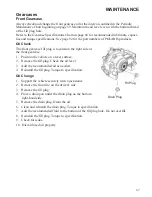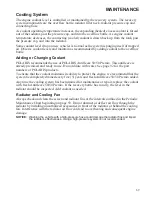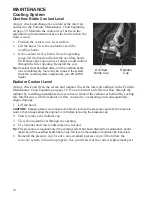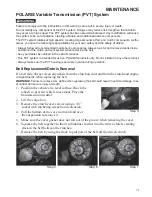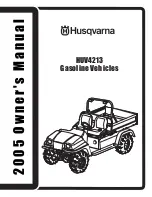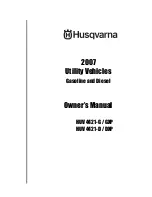
56
WINCH GUIDE
Shock Loading
WARNING!
Your winch cable is very strong but it is NOT designed for dynamic, or “shock” loading.
Shock loading may tension a winch cable beyond its strength and cause the cable to break. The end of
a broken winch cable under such high loading can cause SEVERE INJURY or DEATH to you and other
bystanders.
Winch cables are designed to NOT absorb energy. This is true of both wire-rope and syn-
thetic-rope winch cables.
1. Never attempt to “jerk” a load with the winch. For example, never take up slack in the
winch cable by moving the winching vehicle in an attempt to move an object. This is a
dangerous practice. It generates high winch cable loads that may exceed the strength of
the cable. Even a slowly moving vehicle can create large shock loads in a winch cable.
WARNING!
SEVERE INJURY or DEATH can result from a broken winch cable.
2. Never quickly turn the winch ON and OFF repeatedly (“jogging”). This puts extra load
on the winch, winch cable, and generates excessive heat from the motor. This is a form
of shock loading.
3. Never tow a vehicle or other object with your winch. Towing an object with a winch
produces shock loading of the cable even when towing at slow speeds. Towing from a
winch also positions the towing force high on the vehicle. This can cause instability of
the vehicle and possibly lead to an accident.
4. Never use recovery straps with your winch. Recovery straps are designed to stretch and
can store energy. This stored energy in the recovery strap is released if a winch cable
fails making the event even more hazardous. Similarly, never use elastic “bungie” cords
for winching.
5. Never use the winch to tie down a vehicle to a trailer or other transportation vehicle. This
type of use also causes shock loading that can cause damage to the winch, winch cable,
or vehicles used.
Your winch cable is designed and tested to withstand the loads produced by the winch
motor when operated from a stationary vehicle. Always remember that the winch and
winch cable are NOT designed for shock loading.

